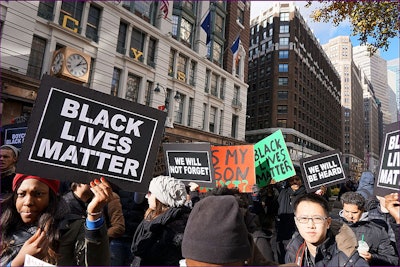Two days after the death of George Floyd — a Black man who died at the hands of a Minneapolis police officer — University of Minnesota President Joan Gabel made an announcement: The university is breaking its ties with the Minneapolis police department. The city department can no longer provide security at campus events or be called on for specialized services like K-9 explosive detection.
“I write to you to express our overwhelming sadness, and our demands for accountability and justice,” Gabel’s statement read. “Our campuses and facilities are a part of the communities in which they reside. University students, staff, and faculty are day-to-day participants in the life of every community in this state, and we must act when our neighbors are harmed and in pain.”

“A man was murdered,” Kerandi writes. “It is our job as an institution to exert whatever pressure we can to keep our students safe and demand justice in our city and state.”
Her call to action was just the beginning. Now an avalanche of student movements are urging universities to separate from metro police and reform campus policing practices — or abolish university police departments altogether.
At Ohio State University, both student government and faculty sent letters urging the school to disassociate from the Columbus police department. Similarly, student groups at the University of Louisville, Georgetown University, Northwestern University, Columbia University, New York University and others have created petitions to cut ties with city police, garnering thousands of signatures.
But many students argue disentangling from city police — who often provide extra security for events or manage campus protests — isn’t enough. University of Chicago students occupied campus police headquarters on June 13, calling for the department to be dissolved. Meanwhile, Harvard students revived calls to disband their campus police after Harvard University officers were found monitoring a Boston protest.














